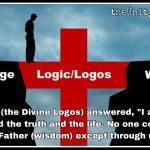
Parenting with Love and Logic by Foster Cline and Jim Fay advocates for raising responsible, self-confident children through empathetic discipline and natural consequences. The book emphasizes allowing children to make choices within clear boundaries, fostering accountability by letting them experience the logical outcomes of their decisions. It promotes a parenting style that balances love with firm guidance, avoiding punitive measures to encourage critical thinking and independence. Rebellion is a counterfeit […] Read more »












